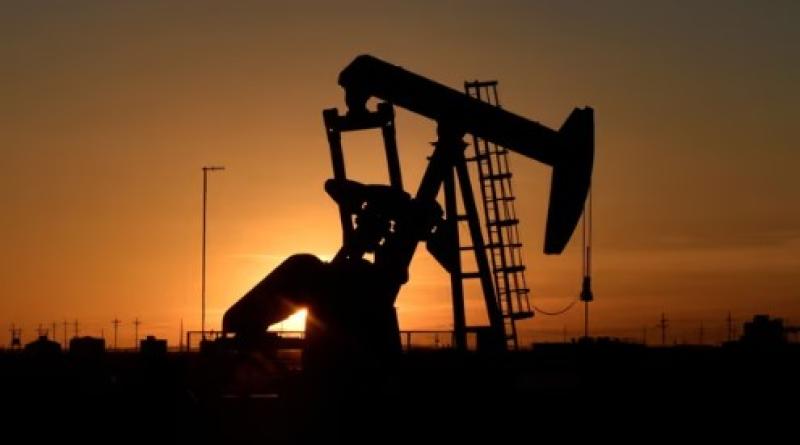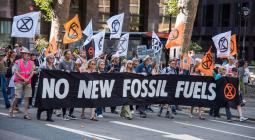Leaders of world’s major cities call for phase-out of fossil fuels

As Cop28 conference begins, letter to heads of state from the C40 group says fossil fuels era must end
Governments must commit to bringing the fossil fuel era to a close, a group of mayors representing the world’s leading cities has demanded, amid growing pressure for an agreed phase-out of oil, gas and coal at the Cop28 climate talks.
Leaders from the nearly 200 countries at the United Nations climate summit under way in the United Arab Emirates must face the “inescapable truth” that fossil fuels must be left behind, a letter to heads of state from the C40 group, which includes the mayors of cities including New York, London, Beijing, Paris and Cape Town, states.
“We must phase out fossil fuels to protect our climate but also to protect people from the unjust impacts on their health and standard of living,” reads the letter, signed by C40 co-chairs Sadiq Khan, the mayor of London;, and Yvonne Aki-Sawyerr, the mayor of Freetown in Sierra Leone. The letter calls for measures “to curb the undue influence of the fossil fuel industry, to move public money from fossil fuels to a just and clean energy transition and partner with us to accelerate action and prosperity”.
The intervention from leaders of the world’s major cities adds to the chorus of countries and advocacy groups calling for a global compact to call time on fossil fuels. Agreements stemming from the UN climate talks, held each year since 1995, have never included language on phasing out fossil fuels, despite their use being the primary cause of the climate crisis.
It is expected that at least half of the countries represented at the summit in Dubai would back an agreement that encompasses a fossil fuel phase-out, including the United States, the world’s leading producer of oil and gas. António Guterres, the secretary general of the UN, has urged countries to end the use of what he calls the “poisonous root” of the climate crisis.
John Kerry, the US’s climate envoy, said: “We find it hard for anybody to understand how they would continue to allow unabated burning of fossil fuel in the world we’re living in, knowing what we know about the dangers.” Kerry said the American delegation supported a commitment to “accelerate the phase-out of unabated fossil fuels, and to achieve net zero emissions in all energy systems by mid-century”.
Such an agreement would, as part of the Cop process, be voluntary and be via consensus, raising the distinct possibility that other major oil and gas producers, such as Russia, Saudi Arabia or the UAE, the host of the Cop28 talks that plans a major increase in oil drilling, will block any unambiguous language calling for an end to fossil fuels.
“We still have people who have not signed up to that,” Kerry said. “They are, some of them, among the major producers of fossil fuel, and they need to immediately step up and be part of the solution, not the most significant part of the problem.”
Another sticking point is likely to be the support of the US and other countries to continue using “abated” fossil fuels – by capturing the emissions caused and burying them or putting them to other uses. Globally, governments are planning to spend $200bn (£160bn) in public money to support carbon capture and storage, according to a new report by Oil Change International, which proponents say is vital to slashing emissions while ensuring no disruptions to people’s energy supplies.
Many environment groups, however, are opposed to any mention of abated fossil fuels, calling such technology unproven at any scale and a ruse to ensure the oil and gas industry continues to post record profits and outline plans for soaring levels of extraction.
Jean Su, energy justice director at the Center for Biological Diversity, said: “We don’t need any of these dangerous, distracting adjectives like abated to give a lifeline to the industry, we just need a straight, honest phase-out of fossil fuels.
“The Biden administration and John Kerry are very dead set for some reason on these tortured pathways to keep fossil fuels continuing, whereas we have the technologies already, like solar and wind, for our energy.”
Even if language to phase out fossil fuels is agreed upon for the first time in Dubai, it will jar with the current reality of countries’ ambitions. The world is set to burn double the amount of fossil fuels by 2030 that could be allowed to avoid a disastrous temperature rise, with the US on track to break records for oil and gas production this year.
A declaration of a phase-out at Cop28 would still be meaningful, however, according to Su. “It would be a breakthrough,” she said. “It would give language to ordinary people to pressure their governments to keep their word. At the very least it would set goalposts we have been missing this entire time.”
Photograph: Nick Oxford/Reuters






